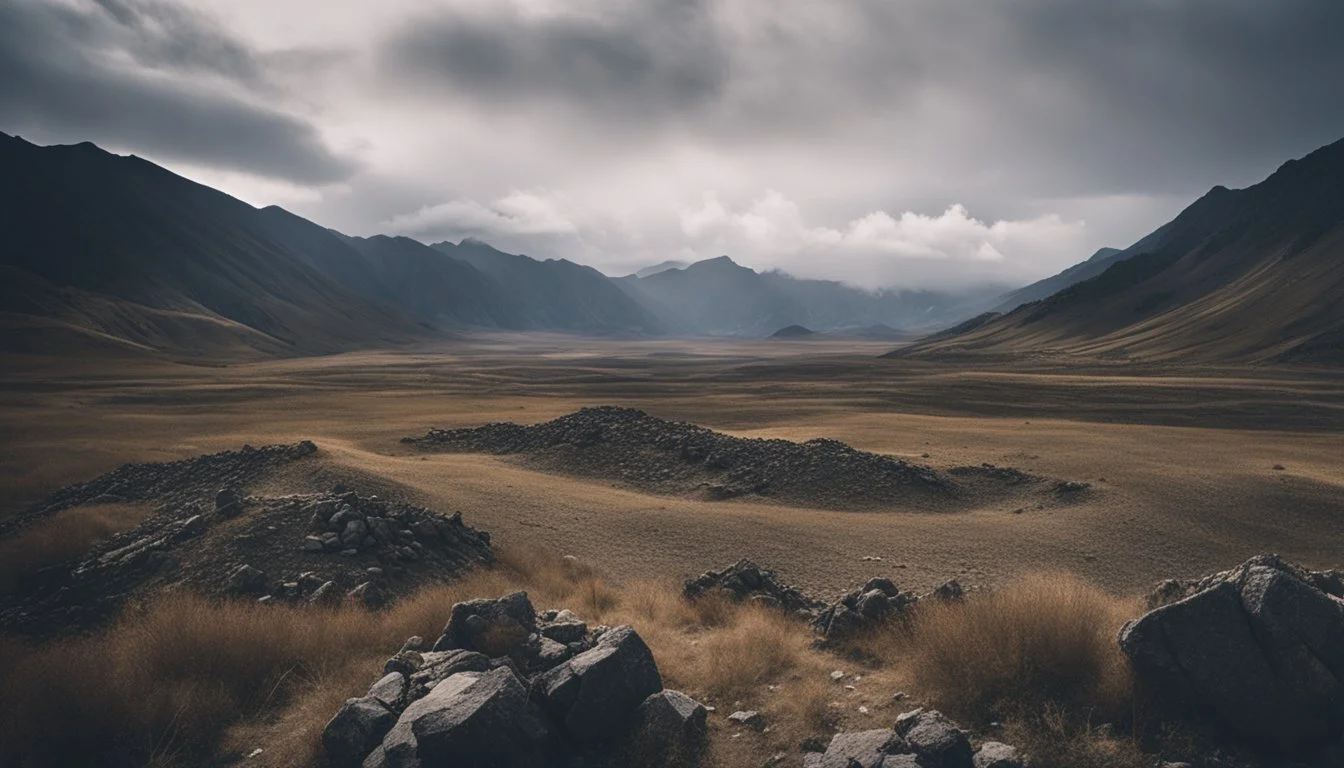Patricio Guzmán: Preserving the Memory of Chile's Painful Past Through Film
Patricio Guzmán stands as a crucial figure in preserving the memory of Chile's turbulent history. Through his compelling documentaries, he captures the nation's past with a nuanced blend of personal and political narrative. A country without documentary films, Guzmán believes, is like a family without a photo album. His films serve as powerful reminders of Chile's struggles and resilience, offering an unflinching look at the era of Pinochet's dictatorship.
Guzmán's work, such as "The Battle of Chile" and "Chile, Obstinate Memory," provides an invaluable perspective on the collective and individual memories of those affected by political upheaval. By returning to Chile years after his initial exile, Guzmán reconnects with his roots and brings to light stories that many would prefer to forget. His documentaries are not just historical records; they are therapeutic processes for a nation grappling with its identity.
Nostalgia for the Light illuminates the connection between the cosmos and human memory, further showcasing Guzmán's ability to intertwine the universal with the personal. Through meticulous storytelling and stunning visuals, he addresses the profound impacts of Chile's past on its present and future. As a filmmaker, Guzmán blends artistry with activism, ensuring that the echoes of Chile’s history continue to resonate with new generations.
The Life and Career of Patricio Guzmán
Patricio Guzmán Lozanes, born on August 11, 1941, is a Chilean documentary film director.
He gained prominence with his film trilogy, The Battle of Chile (1975-1979), which documented the political turmoil and military coup in Chile.
Guzmán continued to create powerful documentaries that reflect the country's past and present.
In the 2010s, Guzmán completed another notable trilogy: Nostalgia for the Light (2010), The Pearl Button (2015), and The Cordillera of Dreams (2019).
These films explore Chile's history, geography, and the personal stories intertwined with them.
Guzmán's work is recognized for its dedication to preserving collective memory.
His 2022 film, My Imaginary Country, delves into the roots of Chile's recent social protests, known as the estallido social.
Throughout his career, Guzmán's films have received critical acclaim and numerous awards.
Guzmán once remarked, "A country without documentary films is like a family without a photo album."
His passion for using film to document and remember Chile's history is evident in his extensive body of work.
Recognized internationally, Guzmán has become a prominent voice in documentary filmmaking, illuminating the complexities of Chile's political and social landscape.
His filmography serves as both an artistic and historical record of Chile's journey.
The Political Context of Chile
Chile experienced significant political upheaval in the latter half of the 20th century. This period was marked by the rise and fall of Salvador Allende, the violent military coup of 1973, and the subsequent authoritarian rule under Augusto Pinochet.
The Rise of Salvador Allende
Salvador Allende, a Marxist, became the President of Chile in 1970. His election was historic, representing the first time a Marxist had been democratically elected in Latin America. Allende's government embarked on radical reforms, including nationalization of industries and collectivization of agriculture.
His policies aimed to reduce income inequality and improve living standards for the poor. Opposition from conservative sectors and economic challenges led to political instability. The United States opposed his presidency, expressing concerns about the spread of communism in the region. This opposition further exacerbated internal conflicts and economic difficulties, setting the stage for future unrest.
The Coup of 1973
On September 11, 1973, a military coup led by General Augusto Pinochet ousted Allende. The coup was marked by violence and the bombing of the presidential palace, resulting in Allende's death. This event ushered in a brutal military dictatorship.
The junta justified the coup by citing the need to restore order and end economic turmoil. The coup had profound effects on Chilean society, as it dismantled democratic institutions. Thousands of Allende supporters were detained, tortured, or disappeared. The junta implemented strict censorship and martial law, ruling with an iron fist.
The Pinochet Regime
General Pinochet ruled Chile from 1973 to 1990. His regime was characterized by severe human rights abuses, detailed in numerous reports and testimonies. Political opponents faced repression, executions, and forced disappearances.
Pinochet implemented free-market economic reforms, inspired by neoliberal principles. While these policies led to economic growth and stability for some, they also increased inequality and poverty for others. The regime's legacy is controversial, combining economic transformation with a dark history of repression. International outcry and domestic resistance eventually pressured the regime, leading to a plebiscite in 1988 and the eventual restoration of democracy in 1990.
Guzmán's Cinematic Approach
Patricio Guzmán's films are renowned for their meticulous documentary style and their exploration of memory and identity, focusing heavily on Chile's tumultuous history.
Documentary Style and Techniques
Guzmán employs a combination of archival footage, interviews, and narration to tell compelling stories about Chile's past.
He uses long takes and static shots to allow viewers to contemplate the historical events.
Interviews with survivors and witnesses provide personal perspectives, infusing the films with emotional depth.
The sparing use of music and sound effects enhances the raw and authentic feel of his films.
In "Nostalgia for the Light," Guzmán uses expansive shots of the Atacama Desert, linking the vast, silent landscape to the unresolved traumas of Chilean history.
Themes of Memory and Identity
A central theme in Guzmán's work is the fragility of collective memory.
He focuses on how societies remember and forget traumatic events, particularly the Pinochet dictatorship.
His documentaries often highlight the contrast between public memory and private memory, showing how personal recollections can sometimes challenge official histories.
In "Chile, Obstinate Memory," Guzmán revisits scenes and people from his earlier work "The Battle of Chile," illustrating the enduring impact of past events on individual and collective identities.
He frequently examines identity through the lens of historical consciousness, suggesting that understanding the past is crucial for defining a national identity.
Key Works
Patricio Guzmán's most significant works offer a poignant examination of Chile's history through different lenses. Each film serves as a crucial chapter in documenting the nation's turbulent past and attempts to reconcile with it.
The Battle of Chile
The Battle of Chile is a landmark documentary series divided into three parts. Released between 1975 and 1979, the series chronicles the political turmoil in Chile leading up to the military coup of 1973. Guzmán captures everything from street protests to the final moments at the presidential palace, providing a comprehensive view of the events.
The film is renowned for its raw footage and extensive interviews, making it a critical resource for understanding Chile's political landscape. This trilogy is lauded for its detailed and timely portrayal of the sociopolitical environment during a pivotal moment in Chilean history.
Nostalgia for the Light
Nostalgia for the Light, released in 2010, shifts Guzmán's focus from political upheaval to the Atacama Desert. The film juxtaposes the lives of astronomers, studying the cosmos, with families searching for the remains of their loved ones who disappeared during Pinochet's regime. This contrast highlights the intersection of science and memory.
This documentary stands out for its unique thematic blend. It goes beyond typical historical documentation to reflect on existential questions and human resilience. The Atacama Desert serves as a powerful metaphor for the quest for truth, both in the stars and in the earth.
The Pearl Button
Released in 2015, The Pearl Button explores Chile's relationship with water and its historical implications. The film delves into the stories of indigenous Patagonian tribes and political prisoners who were executed by being tied to train rails and thrown into the sea during Pinochet's dictatorship.
Utilizing the metaphor of water, Guzmán connects various histories, showing how the element plays a crucial role in Chile’s narrative. The title refers to a pearl button found in the sea, symbolizing the silent witnesses of the atrocities committed. This film continues Guzmán's commitment to uncovering painful truths, illuminating often overlooked aspects of Chilean history.
Impact on Chilean Society and Beyond
Patricio Guzmán's documentaries have profoundly affected Chilean society. His works, such as The Battle of Chile and Chile, Obstinate Memory, serve as visual records of Chile's turbulent history.
These films are crucial in educating newer generations about the struggles their ancestors faced. In classrooms and public forums, Guzmán’s documentaries facilitate discussions on democracy, human rights, and social justice.
Beyond Chile, Guzmán's films have earned international acclaim. They are shown at global film festivals, attracting attention to Chile’s historical and political context.
This international recognition nurtures global solidarity and awareness. Scholars and activists worldwide use Guzmán’s work to study power, resistance, and memory preservation.
Guzmán's dedication to documenting history also encourages other filmmakers to explore documentary filmmaking. By addressing issues of memory and loss, he sets a high standard for the genre.
The films have not only preserved history but also helped heal collective wounds. As viewers engage with these stories, they process past traumas, fostering communal healing.
In essence, Guzmán has created a cinematic encyclopedia of Chile's political and social changes. This has made him a vital figure in both Chilean culture and the global documentary film community.
Preservation Efforts
Patricio Guzmán has dedicated his life to preserving Chile's historical memory through various efforts. These include meticulous archiving of historical footage and engaging in educational initiatives.
Archiving the Past
Guzmán has amassed a significant collection of historical footage, particularly from the tumultuous period of the 1973 Chilean coup and its aftermath.
He meticulously preserves these visual records, storing them in secure facilities to ensure their longevity. These archives are not only valuable for historical documentation but also serve as a tool for ongoing research and awareness.
His films, like "The Battle of Chile" and "The Obstinate Memory," rely heavily on this preserved footage. This has allowed successive generations to witness and reflect on pivotal moments in Chile’s history.
Educational Initiatives
Guzmán extends his preservation efforts into the realm of education. He frequently collaborates with universities, museums, and cultural institutions to introduce younger audiences to Chile's past.
His documentaries are often included in curricula, providing a visual and emotional context that textbooks alone cannot achieve.
Moreover, he conducts seminars, workshops, and film screenings aimed at fostering dialogue and understanding. By engaging with educational institutions, Guzmán ensures that the historical narratives captured in his films continue to inform and educate, keeping the collective memory alive for future generations.




